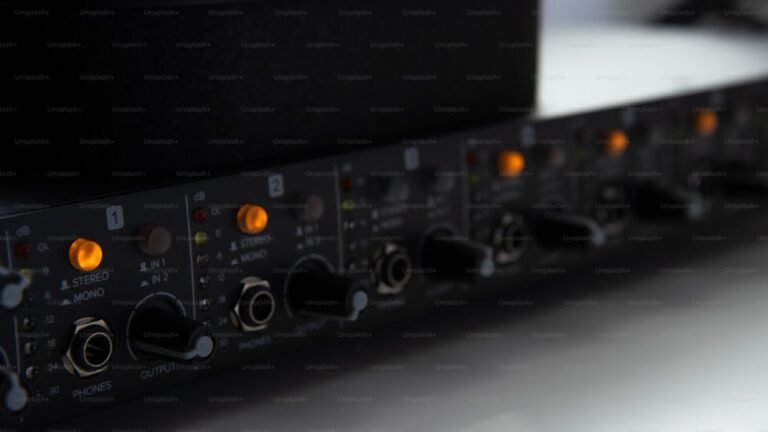Audio files that are turned from MP3 to M4A format allows better sound quality and more compelling compression capabilities. Today, we will cover everything related to converting MP3 files as M4A not only its benefits but the best tools to perform such task and walk you through on how it actually works.
Why Convert MP3 to M4A?
MP3 is one of the most popular audio formats because it has a large number of compatibility. But with that in mind, we are going to convert our MP3s into M4A files.
Higher Sound Quality: M4A files (with stereo bit rate of 160kbps or greater) typically sound much better than MP3s at the same audio quality.
Bandwidth Efficient: M4A files tend to be smaller than MP3s, which significantly reduces the amount of bandwidth required to stream audio (thus reducing costs and improving efficiency).
Advanced Features: M4A has the ability to include rich metadata (the title, artist name…) and can support Digital Rights Management as well for applications that require copyright protection.
How to Select a MP3 to M4A File Converter?
Choosing the one right for you is important to get an effective and quality conversion. Features to Consider When Choosing an MP3 to M4A Converter
This is the most important feature of it, which refers to an intuitive user-friendly interface that makes you convert XLS file in a very easy way but not any other harder manner.
Fast conversion speeds – which can really make a difference if you have lots of files to convert.
Lossless Conversion: Whether or not the software is able to convert without damaging audio quality
Batch conversion: You can convert as many files at a time to save your precious times.
Extra Options: These include options to edit metadata, adjust bitrate and cut audio files.
Conclusion Recommended MP3 to M4A Converters
Get some of the best useful tools for your MP3 to M4A converting tasks here
Audacity (Free, open source software / GNU GPLv3 for Source/Code and LAME [or an optional patent download] for the MP3 export)-audio editor with recording/editing capabilities supporting a wide range of formats.
Free make Audio Converter: A free and simple tool with all the basic features like batch converting, multiple formats etc.
VLC Media Player: This open-source media player allows you to convert various audio files like from MP3 to M4A.
Switch Audio Converter: A faster service than the other options (mostly) and a paid one which offers high quality output, offering support for many formats.
Step-by-step Instructions on Convert MP3 to M4A
There’s a good chance you can be converting MP3s at 256 kbps to M4As without fans of the genre ever noticing as long as iTunes is in on it. Follow these steps to ensure a successful move:
Step 1: Download and Install- (Select a converter from the recommended list) – You need to download it into your device. Follow the installation instructions provided.
Step- 1: Add MP3 Files Firstly launch the converter and add you mp3 file. You can typically drag and drop files into a program you use to convert them.
Output Format: Click the drop-down Shown list and select M4A [AAC]. Step 4: If Quality Settings are given, adjust them If there are options to customize your conversion settings; adjust it based on how you like the output with respect to bitrate, frequency etc.
Convert Files: Here you will select convert button to start the process. The time it will take, depends on the files and their size.
Save Converted Files: Once the conversion process is done, save M4A files to your desired location on your device.
Conversion Tips and Tricks
Back up Your Files: You should always back-up your original MP3 files before converting them to prevent data-loss.
In the quality settings: Be aware of your converters’ default conversion processes to give you an optimal listening experience.
Update Software: Update your conversion ranks that will give you an upper hand by bringing the best results and features.
Play with the Settings: If you find the results subpar, tweak around a little to get something that retains quality but doesn’t make for huge image sizes.
Conclusion
There are several reasons for converting MP3 to M4A, such as better quality sound and more efficient compression. With the proper converter and a clearly defined process, you can handle your sound files to perfection. To help you enjoy your favorite music without any restrictions, we go into the MP3 to M4A conversion process that will make sense both for casual listener and audiophile.
Audio files that are turned from MP3 to M4A format allows better sound quality and more compelling compression capabilities. Today, we will cover everything related to converting MP3 files as M4A not only its benefits but the best tools to perform such task and walk you through on how it actually works.
Why Convert MP3 to M4A?
MP3 is one of the most popular audio formats because it has a large number of compatibility. But with that in mind, we are going to convert our MP3s into M4A files.
Higher Sound Quality: M4A files (with stereo bit rate of 160kbps or greater) typically sound much better than MP3s at the same audio quality.
Bandwidth Efficient: M4A files tend to be smaller than MP3s, which significantly reduces the amount of bandwidth required to stream audio (thus reducing costs and improving efficiency).
Advanced Features: M4A has the ability to include rich metadata (the title, artist name…) and can support Digital Rights Management as well for applications that require copyright protection.
How to Select a MP3 to M4A File Converter?
Choosing the one right for you is important to get an effective and quality conversion. Features to Consider When Choosing an MP3 to M4A Converter
This is the most important feature of it, which refers to an intuitive user-friendly interface that makes you convert XLS file in a very easy way but not any other harder manner.
Fast conversion speeds – which can really make a difference if you have lots of files to convert.
Lossless Conversion: Whether or not the software is able to convert without damaging audio quality
Batch conversion: You can convert as many files at a time to save your precious times.
Extra Options: These include options to edit metadata, adjust bitrate and cut audio files.
Conclusion Recommended MP3 to M4A Converters
Get some of the best useful tools for your MP3 to M4A converting tasks here
Audacity (Free, open source software / GNU GPLv3 for Source/Code and LAME [or an optional patent download] for the MP3 export)-audio editor with recording/editing capabilities supporting a wide range of formats.
Free make Audio Converter: A free and simple tool with all the basic features like batch converting, multiple formats etc.
VLC Media Player: This open-source media player allows you to convert various audio files like from MP3 to M4A.
Switch Audio Converter: A faster service than the other options (mostly) and a paid one which offers high quality output, offering support for many formats.
Detailed Steps to Make MP3 M4A Conversion
Thankfully it is a simple process to convert MP3 files into M4A format using an up-to-possibly-date version of iTunes.To ensure a seamless transition, make sure to follow these steps:
Step 1: Download and Install- (Select a converter from the recommended list) – You need to download it into your device. Follow the installation instructions provided.
Step- 1: Add MP3 Files Firstly launch the converter and add you mp3 file. You can typically drag and drop files into a program you use to convert them.
Output Format: Click the drop-down Shown list and select M4A [AAC]. Step 4: If Quality Settings are given, adjust them If there are options to customize your conversion settings; adjust it based on how you like the output with respect to bitrate, frequency etc.
Convert Files: Here you will select convert button to start the process. The time it will take, depends on the files and their size.
Save Converted Files: Once the conversion process is done, save M4A files to your desired location on your device.
Conversion Tips and Tricks
Back up Your Files: You should always back-up your original MP3 files before converting them to prevent data-loss.
In the quality settings: Be aware of your converters’ default conversion processes to give you an optimal listening experience.
Update Software: Update your conversion ranks that will give you an upper hand by bringing the best results and features.
Play with the Settings: If you find the results subpar, tweak around a little to get something that retains quality but doesn’t make for huge image sizes.
Conclusion
There are several reasons for converting MP3 to M4A, such as better quality sound and more efficient compression. With the proper converter and a clearly defined process, you can handle your sound files to perfection. To help you enjoy your favorite music without any restrictions, we go into the MP3 to M4A conversion process that will make sense both for casual listener and audiophile.





